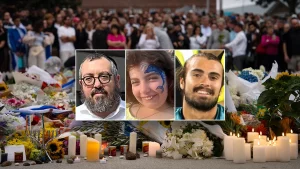Kenya-Led Multinational Security Force for Haiti Faces Critical UN Vote
International Community Poised to Approve Long-Awaited Intervention as Haiti’s Crisis Deepens
In a pivotal moment for a nation gripped by escalating violence and institutional collapse, the United Nations Security Council is set to vote Tuesday on authorizing a Kenya-led multinational security mission to Haiti. The proposed force—potentially comprising up to 5,500 soldiers and police officers—represents the most significant international intervention attempt in years to address Haiti’s spiraling humanitarian and security catastrophe. However, despite mounting pressure for action, critical questions remain about which nations will contribute personnel and financial resources to the mission, casting uncertainty over its ultimate effectiveness and timeline for deployment.
The Caribbean nation has descended into unprecedented chaos over the past two years, with powerful gangs controlling approximately 80 percent of Port-au-Prince, the capital. These armed groups have systematically employed sexual violence, kidnapping, and indiscriminate killings as tactics to expand their territorial control and influence. The human toll has been devastating—over 2,400 people killed in the first quarter of 2023 alone, according to UN estimates, while nearly 200,000 Haitians have been internally displaced. Humanitarian organizations report increasingly limited access to vulnerable communities as gang blockades restrict movement of essential supplies, leaving millions facing acute food insecurity and collapsed healthcare services. Against this backdrop, Tuesday’s vote represents what many diplomats characterize as perhaps the last opportunity for meaningful international intervention before a complete state failure.
“This is not simply another peacekeeping mission,” explained Dr. Robert Fatton, a Haiti expert at the University of Virginia, in an interview. “The proposed Kenya-led force represents a fundamentally different approach from previous UN interventions in Haiti, which have often been criticized for their limited mandates and questionable outcomes. The central challenge will be establishing security parameters in gang-controlled areas without repeating past mistakes, particularly regarding civilian protection and respect for human rights.” The mission’s unique structure—being multinational rather than UN-led—stems partly from widespread acknowledgment of the problematic legacy of previous international presences in Haiti, including a UN peacekeeping mission that inadvertently introduced cholera to the country in 2010, causing over 10,000 deaths.
The resolution being considered would authorize the multinational force to operate for an initial 12-month period with specific objectives focused on securing critical infrastructure, enabling humanitarian aid delivery, and supporting the beleaguered Haitian National Police. Kenya has emerged as the most prominent potential contributor, offering up to 1,000 personnel, with Jamaica, the Bahamas, and Antigua and Barbuda expressing willingness to participate on smaller scales. However, diplomatic sources speaking on condition of anonymity revealed significant behind-the-scenes uncertainty regarding concrete commitments. “We see enthusiastic public statements of support but far fewer firm pledges when discussing actual deployment numbers or financial contributions,” noted one Western diplomat involved in the negotiations. The United States has pledged $100 million toward the mission, with another $100 million potentially forthcoming, but the estimated $600 million annual operating cost leaves a substantial funding gap that remains unaddressed as the vote approaches.
Adding complexity to the situation is Haiti’s fractured political landscape. The country has operated without a functioning parliament since January 2020, and the July 2021 assassination of President Jovenel Moïse created a leadership vacuum that has never been resolved. Prime Minister Ariel Henry, who assumed power without electoral validation following Moïse’s killing, leads a transitional government with minimal public legitimacy. The security mission faces the delicate challenge of supporting Haitian institutions without appearing to prop up an unelected government. “Any international force will immediately confront questions about whose authority they’re reinforcing,” said Emmanuela Douyon, a Haitian political analyst and director of the think tank Policité. “Without simultaneous progress on political transition and electoral preparation, even the most well-executed security operation risks becoming entangled in Haiti’s complex legitimacy questions.”
The historical context looms large over Tuesday’s vote, with Haiti’s complex relationship with international intervention stretching back to its founding as the world’s first Black republic following a successful slave revolution against French colonial rule. More recent experiences with external forces have generated widespread skepticism among ordinary Haitians, many of whom associate previous UN missions with sexual abuse scandals, cholera introduction, and limited sustainable improvements. Yet the current security situation has become so dire that recent polls indicate a majority of Haitians now reluctantly support international intervention, viewing it as necessary despite historical reservations. As one Port-au-Prince resident told international journalists last week: “We cannot live like this anymore. The gangs control everything. If foreign forces come with respect for our dignity and a clear plan to leave, most people will welcome them now, even with our complicated history.” This sentiment reflects the impossible choices facing Haiti’s population, trapped between brutal gang violence and understandable wariness about foreign intervention that has often failed to deliver promised improvements.
Security Council Deliberations Reveal Geopolitical Divisions
The path to Tuesday’s Security Council vote has been marked by intense diplomatic maneuvering and revealing geopolitical fractures. While the United States, France, and Ecuador have co-sponsored the resolution, Russia and China have expressed reservations about aspects of the proposed mission’s structure and mandate. Their concerns center on questions of sovereignty and the precedent of authorizing a non-UN multinational force, though both nations have signaled they may abstain rather than veto the resolution.
“The deliberations reflect broader tensions within the international system about intervention norms and who bears responsibility for stabilizing fragile states,” explained Maria Fernanda Espinosa, former President of the UN General Assembly. “There’s growing recognition that Haiti’s crisis demands action, but fundamental disagreements persist about what form that action should take and who should lead it.”
The resolution text has undergone numerous revisions to address these concerns, including strengthened human rights monitoring provisions and explicit timelines for reassessment. Nevertheless, significant operational questions remain unresolved, including command structures, rules of engagement, and coordination mechanisms between the multinational force and Haitian police.
Beyond Security: Addressing Root Causes of Haiti’s Crisis
Security experts and Haiti specialists emphasize that even if approved and fully deployed, the multinational force represents only one element of what must be a comprehensive approach to Haiti’s multidimensional crisis. The country faces interlocking challenges of institutional weakness, extreme poverty, environmental degradation, and political dysfunction that security forces alone cannot address.
“Any security intervention must be accompanied by serious investment in Haiti’s governance capacity, economic development, and political reform,” said Jake Johnston, senior research associate at the Center for Economic and Policy Research. “Otherwise, we risk creating temporary stability without addressing the underlying conditions that produced the current crisis.”
The Tuesday vote occurs against the backdrop of Haiti’s deteriorating humanitarian situation. The World Food Programme estimates that 4.9 million Haitians—nearly half the population—face acute food insecurity, with 1.8 million at emergency levels. Healthcare facilities report critical shortages of medications, supplies, and personnel, while schools throughout gang-affected areas remain closed, disrupting education for hundreds of thousands of children.
“Security is necessary but insufficient,” observed Dr. Michèle Pierre-Louis, former Prime Minister of Haiti. “What Haiti needs is a coordinated approach that simultaneously addresses security, humanitarian needs, political legitimacy, and economic opportunity. The international community’s track record on delivering this comprehensive support has been disappointing.”
Regional Implications and Migration Concerns
The stakes of Tuesday’s vote extend beyond Haiti’s borders, with regional implications particularly for neighboring Dominican Republic and countries throughout the Caribbean and Latin America. The protracted crisis has driven increased migration, with Haitians undertaking dangerous journeys to seek safety and opportunity elsewhere.
“The humanitarian and security situation in Haiti represents a destabilizing force for the entire region,” noted Antonio Rodrigue, Haiti’s former Minister of Foreign Affairs. “Countries throughout the Americas have a direct interest in supporting sustainable solutions.”
The Biden administration’s support for the multinational force reflects, in part, domestic political concerns about migration, with increased Haitian arrivals at the U.S. southern border creating political pressure in an election year. This context has raised questions about whether U.S. policy is primarily motivated by humanitarian concern for Haitians or domestic political considerations.
The Mission’s Potential Success Metrics and Timeline
If approved, the multinational force would face immediate operational challenges and questions about how to measure success. Security experts suggest the mission would likely focus initially on securing strategic transportation corridors and critical infrastructure before attempting to directly confront gangs in their strongholds.
“The initial phase would realistically focus on establishing secure zones and enabling humanitarian access,” explained Richard Gowan, UN director at the International Crisis Group. “Direct confrontation with entrenched gangs in densely populated urban areas carries high risks of civilian casualties and would require specialized urban warfare capabilities that many contributing countries may not possess.”
A successful deployment would likely require months rather than weeks, with comprehensive pre-deployment training and careful operational planning needed before personnel arrive in Haiti. This timeline means that even with Tuesday’s approval, tangible security improvements may not materialize until well into 2024.
A Critical Moment for International Responsibility
As Tuesday’s vote approaches, the fundamental question facing Security Council members transcends operational details to address core principles of international responsibility. Haiti’s crisis represents a profound test of the international community’s commitment to the protection of vulnerable populations and support for fragile states.
“The situation in Haiti challenges us to consider what our collective obligations are when a state cannot protect its citizens from widespread violence and humanitarian suffering,” said Helen La Lime, the UN Secretary-General’s Special Representative for Haiti. “The Haitian people have demonstrated remarkable resilience through successive crises, but they cannot overcome the current challenges without meaningful international partnership.”
As diplomats finalize their positions ahead of Tuesday’s vote, Haiti’s citizens continue to endure what many observers describe as an unsustainable situation of insecurity, deprivation, and governmental absence. Whatever the outcome of the Security Council deliberations, it will mark a defining moment in Haiti’s relationship with the international community and potentially determine the trajectory of the country’s struggle to restore basic security and governance.









